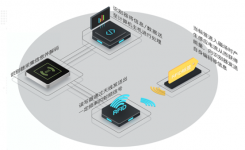
Intelligent file archive management based on RFID technology
[ad_1]
1. Current status of file management
The manual cataloging process is cumbersome and inefficient
Storage order is easier to be disrupted
Look up time-consuming
Inventory efficiency is low and accuracy is poor
Poor security and lack of internal control
There is no physical connection to the account/the account does not match
2. Problems to be solved
Accurate physical positioning
Realize the dynamic management and real-time tracking of files in the warehouse and storage location.
Electronic batch inventory
Identify the physical objects in the archive warehouse in batches.Improve inventory efficiency and eliminate manual inventory errors
Real-time risk warning
According to the application and approval results, automatically plan the file entry and exit operation and location/area within the limited time limit, and the violation will be warned;
Deploy tags and location sensors, combined with biometric equipment, to achieve real-time control of items, identification of personnel, and alarms for violations
Warehouse management visualization
Through the deployment of electronic equipment such as sound and light, it can quickly help warehouse managers to accurately locate the storage location, and display them in the system one by one to ensure that the physical data of the warehouse is clearly visible and accurate.
3. Popularization of RFID technology
RFID (Radio Frequency Identification), also known as radio frequency identification technology, is a communication technology that can identify specific targets and read and write related data through radio signals without the need to establish mechanical or optical contact.
RFID is a new automatic identification technology that reforms the item management mode after bar code technology. Compared with traditional automatic identification technology, RFID technology has good penetrability, multi-tag long-distance identification capability, large capacity of identifiable item information, repeated reading and writing, and unique identification information, which is very suitable for application in physical file management .

Four, product plan
Using advanced technologies such as Internet of Things technology and biometrics, and in accordance with the policy requirements of the “Commercial Bank Collateral Management Guidelines”, the intelligent electronic management of documents and files has been realized, which can improve operation efficiency, save operating costs, and control risks safely. Mobile carriers such as, hard disks, and even warehouses carry out real-time inventory inventory to ensure that the accounts are consistent with the actuals and the management is targeted.

File management function architecture

Software interface display

Positioning within the layer-technical solution

File management workflow
Five, hardware form

Smart filing cabinet

Label binding

Document files are stored in the smart file cabinet
Six, expand the application
According to different application scenarios, corresponding technical solutions can be provided to achieve the goal of intelligent physical management construction, and continue to improve and upgrade under the premise of ensuring basic functions, in order to achieve better scientific and technological effects and user experience.
Accurately locate the file cabinet solution


Smart Shelf Solution

Intelligent robot solution

[ad_2]


